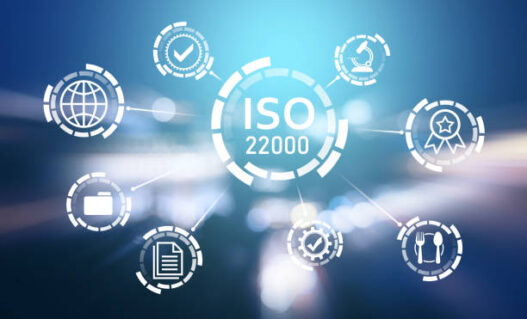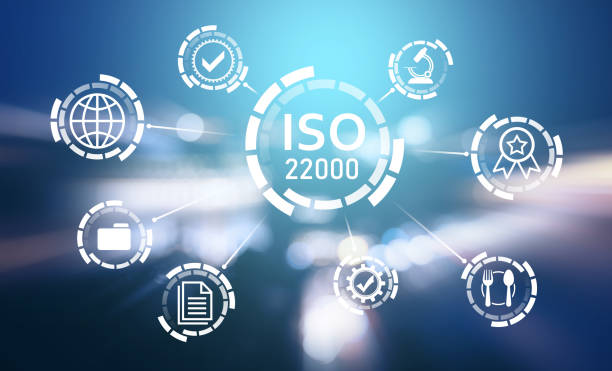I. Introduction to ISO 22000 Certification
A. The Increasing Importance of Food Safety and Quality in Today’s Global Market
As global trade and food production continue to expand, the importance of food safety and quality has never been greater. With consumers becoming more aware of food-related health issues and regulatory standards tightening across the globe, businesses are under increasing pressure to ensure the safety and quality of their products. ISO 22000 helps organizations maintain strict food safety standards, mitigating risks associated with foodborne illnesses, contamination, and product recalls. This focus on food safety not only protects consumers but also strengthens the credibility and trust of brands in the global market.
II. ISO 22000 and the Food Safety Culture
A. Defining Food Safety Culture and Its Importance in the Food Industry
Food safety culture refers to the shared values, beliefs, and behaviors within an organization that prioritize and promote food safety. It encompasses every aspect of an organization, from top management to frontline employees, emphasizing a collective responsibility for producing safe food products.A strong food safety culture ensures that food safety is embedded in the organization’s operations, making it a part of the daily routine and decision-making process.In the food industry, where the risks of contamination, spoilage, and foodborne illness are prevalent, cultivating a robust food safety culture is vital.It not only helps prevent incidents that could harm consumers but also supports the company’s reputation, regulatory compliance, and long-term success.Without a solid food safety culture, even the most advanced systems and procedures may fail, highlighting the need for continuous commitment to food safety at all levels.
B. How ISO 22000 Certification Helps Organizations Build and Maintain a Strong Food Safety Culture
ISO 22000 certification offers organizations a structured framework for managing food safety across their operations. By implementing this international standard, companies are required to integrate food safety management systems into their everyday processes. This includes setting clear food safety objectives, conducting risk assessments, monitoring critical control points, and ensuring effective communication throughout the organization.Achieving ISO 22000 certification means that an organization has demonstrated its commitment to food safety by meeting rigorous standards and continuously improving its practices.The certification process fosters a culture where food safety is not just a requirement but a core value, aligning employees at all levels with the company’s mission of producing safe, high-quality food.
III. Benefits of ISO 22000 Certification
A. Improved Food Safety: Reducing the risk of foodborne illnesses and contamination
ISO 22000 certification significantly enhances food safety by helping organizations implement strict controls throughout their entire food production and supply chain.This standard enables businesses to identify potential food safety hazards, such as microbial contamination, allergens, and cross-contamination, and take proactive measures to eliminate or minimize those risks. The result is a more effective system for preventing foodborne illnesses and ensuring that products meet safety regulations. With ISO 22000 in place, businesses can confidently guarantee the safety of their food products, reducing the likelihood of costly recalls and safeguarding consumer health.
B. Enhanced Consumer Trust: Building confidence in the safety and quality of food products among consumers
In today’s competitive food market, consumers are increasingly concerned about the safety and quality of the food they purchase. ISO 22000 certification helps businesses build and maintain consumer trust by providing a clear demonstration of their commitment to food safety and quality standards.Certification assures consumers that the food products they consume are produced following internationally recognized best practices, giving them confidence in their safety.This transparency fosters greater consumer loyalty, as people are more likely to support companies that prioritize their health and well-being.With the growing emphasis on food safety, companies that achieve ISO 22000 certification distinguish themselves as reliable and responsible producers, reinforcing their brand reputation and gaining a competitive edge.
V. ISO 22000 and Consumer Confidence
A. How ISO 22000 Certification Helps Businesses Assure Consumers of the Safety and Quality of Their Food Products
ISO 22000 certification provides businesses with a credible and reliable way to demonstrate their commitment to food safety and quality. The certification process requires organizations to adopt a rigorous food safety management system, which involves identifying potential hazards, implementing control measures, and continuously monitoring the effectiveness of their safety practices. By achieving ISO 22000 certification, businesses can assure consumers that their products meet high standards of safety, quality, and compliance with international regulations.This certification serves as an assurance that the company follows proven processes to mitigate food safety risks, from production to packaging.
B. The Growing Consumer Demand for Transparency and Food Safety Practices in the Food Industry
Consumers are increasingly aware of the importance of food safety and quality, demanding greater transparency from food producers and suppliers. With rising concerns over foodborne illnesses, contamination, and unethical practices, consumers now expect companies to be open about their food safety measures and supply chain practices.As a result, food manufacturers and suppliers are under growing pressure to demonstrate that their products are produced in a safe and ethical manner.ISO 22000 certification helps businesses meet this demand by providing a clear, internationally recognized framework for ensuring food safety at every stage of production.Certification not only assures consumers that safety standards are being followed but also highlights a company’s dedication to transparency.
VI. How ISO 22000 Certification Impacts Global Food Trade
A. The importance of ISO 22000 for international food trade and export
ISO 22000 certification plays a vital role in facilitating international food trade and exports. As global food markets become more interconnected, maintaining consistent food safety standards is essential for companies looking to expand their reach across borders. Certification in ISO 22000 helps businesses prove that they adhere to internationally recognized food safety standards, which is crucial for gaining access to new markets.Many countries and international buyers require food products to meet specific safety regulations, and ISO 22000 certification serves as a key assurance that these standards are being met.By complying with this globally recognized standard, businesses can not only enhance their reputation but also gain the confidence of distributors, retailers, and consumers worldwide.
B. How ISO 22000 Certification Facilitates Cross-Border Compliance with Food Safety Regulations
Achieving ISO 22000 certification helps companies navigate the complexities of cross-border food safety regulations. Different countries have varying requirements when it comes to food safety, and maintaining compliance can be a challenge for businesses operating internationally.ISO 22000 offers a standardized approach to food safety management, ensuring that companies can meet the diverse regulatory demands of multiple regions.The certification process encourages companies to establish systems that align with global best practices in food safety, making it easier to comply with local regulations across different markets.With ISO 22000, businesses can streamline their operations, reduce the risk of non-compliance, and avoid disruptions in trade due to regulatory hurdles.





